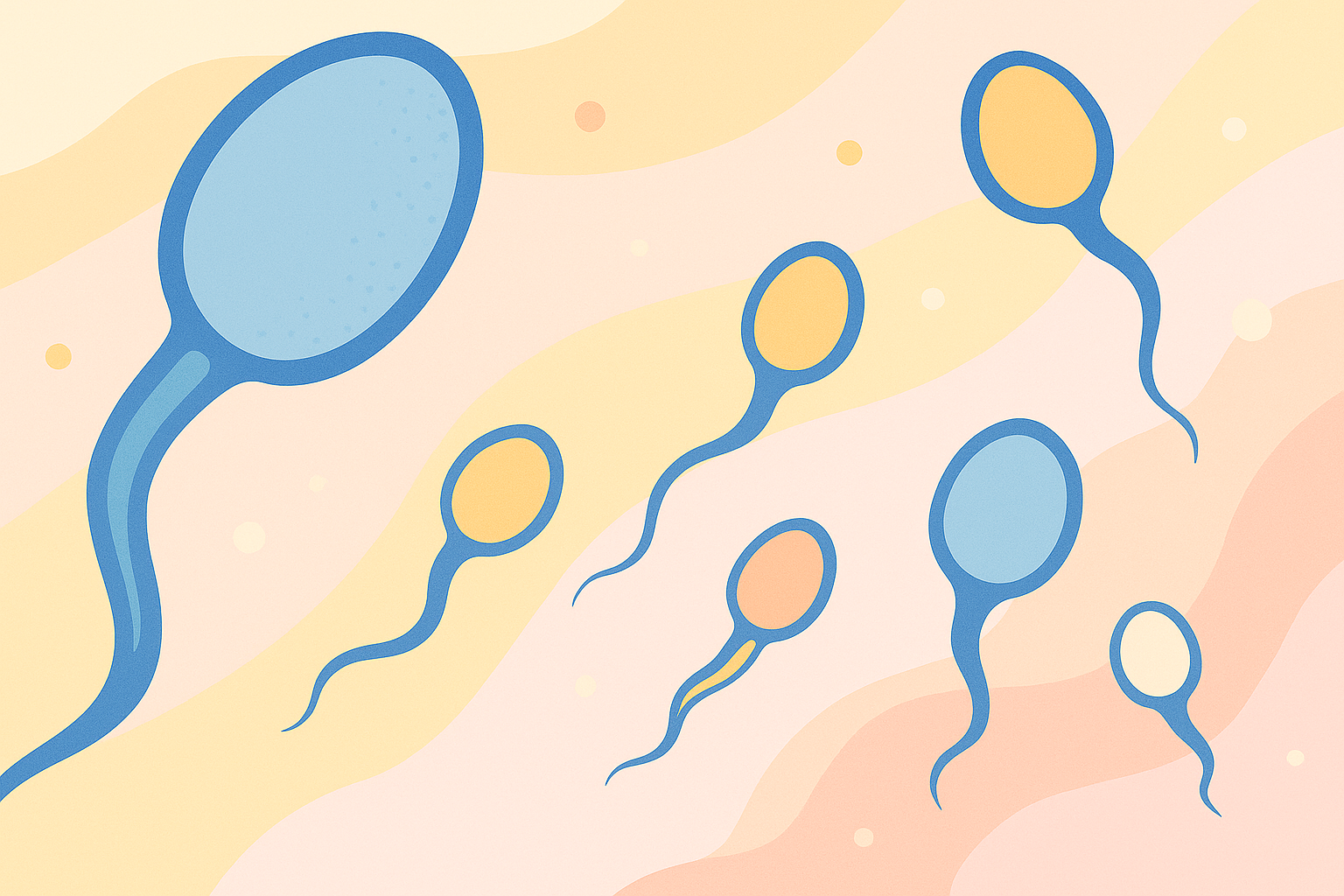How Long Can Sperm Survive in the Vagina?

If you’re trying to conceive (TTC), understanding sperm survival is essential. The sperm’s ability to live and swim through the reproductive system directly impacts your chances of pregnancy. In this article, we’ll explore how long sperm can live in the vagina and beyond, plus ways to naturally improve their lifespan and movement.
Understanding sperm survival
Sperm are designed to reach and fertilise an egg, but their journey isn’t easy. After ejaculation, sperm are exposed to different environments, and not all of them are friendly. The vagina, cervix, uterus, and fallopian tubes each play a role in how long sperm can survive.
Typically, sperm live up to:
- 1 hour in the vagina
- 3 days in the cervix
- 5 days in the uterus and fallopian tubes
But survival depends on many factors — especially cervical mucus, timing, and overall sperm health.

The vagina’s environment
The vaginal environment is naturally acidic, which helps protect against infections — but unfortunately, it’s not ideal for sperm.
Unless you’re in your fertile window, the vagina can kill most sperm within minutes. Without fertile cervical mucus to protect them, sperm struggle to survive longer than 30–60 minutes.
Cervical mucus: the sperm's best friend
During ovulation, your body produces cervical mucus that is clear, stretchy, and slippery — often described as egg-white cervical mucus (EWCM). This mucus:
- Shields sperm from the acidic vagina
- Helps sperm swim through the cervix
- Nourishes them for longer survival
When EWCM is present, sperm can live for up to 5 days in the body — waiting for ovulation to occur.

Tips to improve sperm survival and motility
You can boost your chances of natural conception by supporting sperm survival. Here’s how:
- Track ovulation: Use OPKs or apps to find your fertile window
- Look for egg-white cervical mucus: This is your body's natural green light
- Avoid standard lubricants: Use fertility-friendly lubes like Pre-Seed
- Encourage a healthy lifestyle: Diet, exercise, no smoking, and cutting back alcohol all support better sperm quality
What happens to sperm that don’t fertilise an egg?
If no egg is present, sperm eventually die inside the body and are absorbed. Most of the ejaculate (seminal fluid and non-motile sperm) is expelled or leaks out shortly after sex or insemination — and that’s perfectly normal.
💡 Leakage after intercourse or insemination does not mean it didn’t work. The fastest sperm can reach the cervix within minutes.
Can sperm survive outside the body?
No — sperm can’t survive once they’re exposed to air. On skin, bedding, or clothing, they dry out and die within a few minutes. That’s why handling sperm carefully during home insemination is so important. Keep semen warm and insert it promptly.
Final thoughts
- Sperm survive for less than an hour in the vagina without protection
- With fertile cervical mucus, they can live for up to 5 days in the reproductive system
- Tracking ovulation and understanding your body’s signals can significantly improve your chances of conception
Want more friendly fertility advice and evidence-based support? Explore more Maia Baby fertility guides here.
You’ve got this
Keep Reading: Helpful TTC Guides
Learn more about what affects sperm survival and success:






